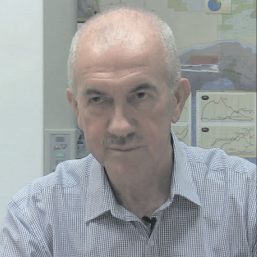Community group Save Our Coast (SOC) has claimed a major win for the local community with the recent announcement that Advent Energy has withdrawn its application to conduct 3D seismic testing in waters off the Central Coast.
But SOC Founder and Chair, Dr Natasha Deen, said the group had major concerns over the fact that drilling for gas was still on the table and seismic testing was still allowable under legislation and could resurface here or along other parts of the coastline.
Advent Energy Managing Director, David Breeze, told Central Coast Newspapers on Tuesday, January 21, that the existing application for seismic testing in coastal waters from Manly to Newcastle had been withdrawn and no further applications would be sought.
This followed the resolution of a long running legal dispute in the Supreme Court of Western Australia, which saw Breeze reappointed as Managing Director, having previously been deposed, and the termination of an agreement with RL energy to fund the Environmental Plan (EP) for 3D seismic testing for PEP11.

“Advent Energy will revert to its pre-existing plan to undertake drilling in the Baleen and Fish basins in the Pep11 permit zone,” Breeze said. “The current program requires drilling as the next step.” Breeze said the decision to abandon future 3D seismic testing was based largely on independent, technical, geological advice that indicated it was not necessary.
He would not comment on the extent or timeline of future drilling activity but said there would be public announcements in due course.
“The shortage of gas in NSW, including the Hunter and Central Coast, continues, and the PEP11 resource may become a vital asset for the future energy needs of households, businesses, industry and related employment,” he said. Breeze said he recognised the importance of community consultation in any future exploration and drilling activity.
Deen hailed the announcement as a “reprieve for our marine animals” which she said SOC’s supporters had helped achieve. “In the wake of catastrophic, unprecedented bushfires that have resulted in tragic loss of life, devastated communities, and decimated wildlife and habitat, to be allowing drilling for gas off our coast in this climate emergency is incomprehensible,” Deen said.
“We need strong leadership in renewable energy to prevent further climate damage, not blasting and drilling for more fossil fuels that will devastate our local coastal environment and accelerate our path towards further climate damage.” Deen said that since February, 2018, SOC had devoted thousands of hours to research and community outreach, raising signatures on petitions and holding dozens of events protesting seismic testing. She said a 56,000 strong petition would be presented to Federal Parliament on February 4.
“This cancellation of seismic testing demonstrates the power of community spirit, that what we are doing is having an impact, but it is far from over,” she said.
“We will continue to oppose this offshore gas field, and possible further seismic testing, every step of the way.” Meanwhile, a public hearing of a Senate inquiry into the impact of seismic testing on fisheries and the marine environment is scheduled to be held in Gosford on March 17, at a venue yet to be announced.
It will be one of several public hearings to be held along the eastern seaboard, and in Tasmania, during February and March. Results of the Federal inquiry will be handed down on May 14. Around 80 submissions were received by the Senate Environment and Communications Committee, which is conducting the inquiry, before the December 16, 2019, deadline, several of which were from organisations and individuals on the Coast.
In addition, hundreds of letters are reported to have been received. Submissions from marine scientist and former Gosford Councillor, Peter Freewater, The Peninsula Environment Group and Save Our Coast were among those received. Background – editorial The revelations from Advent Energy mark a new stage in a long and bitter struggle for control of the company which owns Asset Energy (holder of the PEP11 exploration permit) in joint venture with ASX-listed company, Bounty Oil and Gas.
Editorial background
Advent has a complex shareholder arrangement with partial ownership by a myriad of investors including BPH Energy and listed Pooled Development Fund, MEC Resources, itself currently the subject of a Takeovers Panel enquiry. In 2018-19, after forcing Breeze out as Managing Director, MEC Resources obtained control and engaged RL Energy, a company owned by a former Director of MEC, Greg Channon, in a Farm-in Agreement to fund the costly Environmental Plan (EP) application process.
That Farm-In Agreement, had it proceeded, would have given RL Energy 60 per cent control of Advent Energy, as reported in CCN’s exclusive interview with Advent’s Tobias Foster in May, 2019. Breeze did not wish to comment on these past machinations, but did say that he was very relieved to have finally resolved them. It does bring into sharp relief the effectiveness of the regulator for oil and gas exploration, NOPSEMA, when a seismic testing project can come so close to fruition despite widespread community opposition, academic evidence of the damage to the marine ecosystem and, as it turns out, expert technical advice that it wasn’t even necessary.
Source: Parliament of Australia website, Jan 21 Media statement, Jan 21 Senate Environment and Communications Committee Media statement, Jan 22 Natasha Deen, Save Our Coast Interview, Jan 22 David Breeze, Managing Director, Advent Energy Reporters: Terry Collins and Ross Barry



